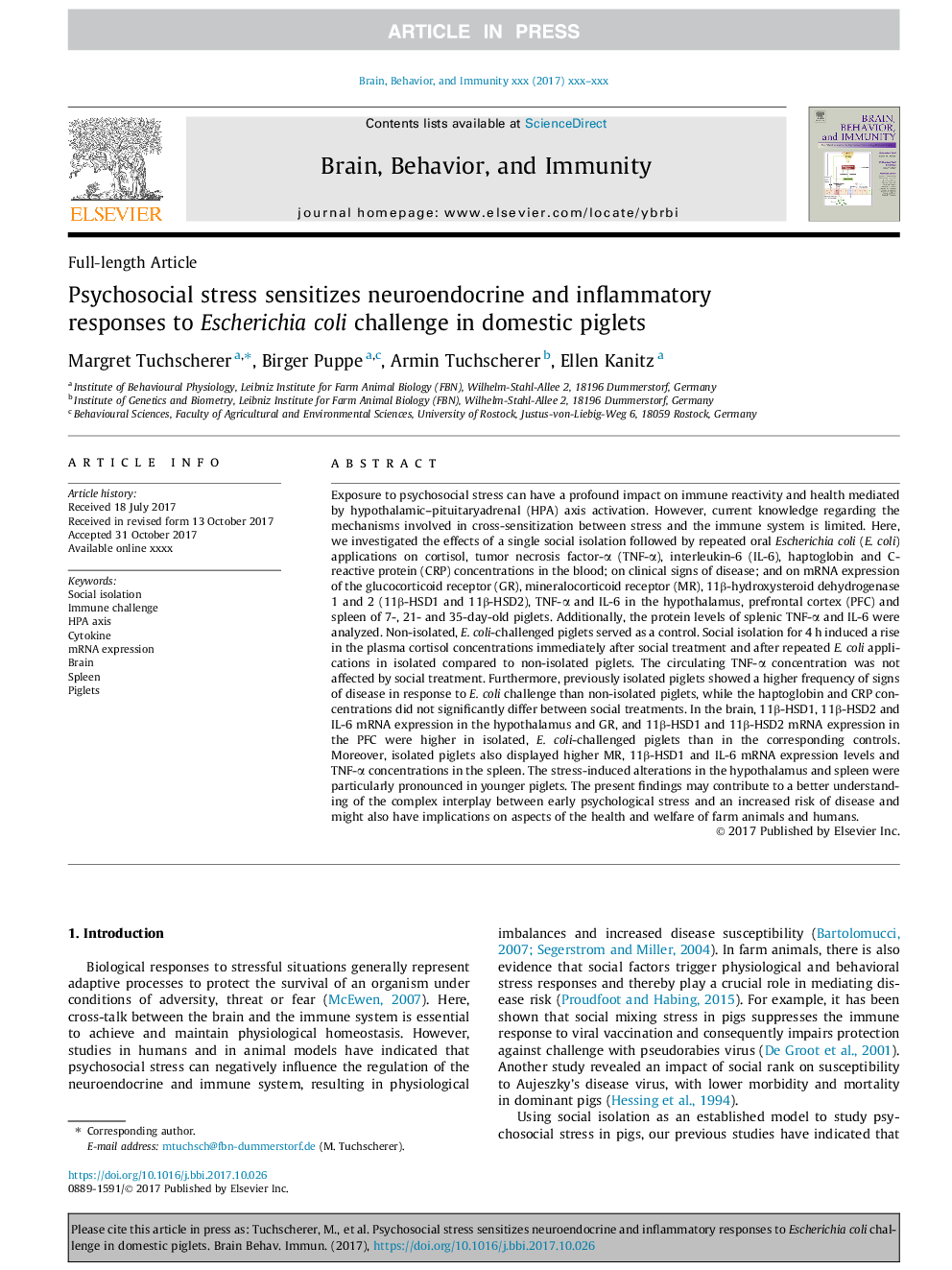ترجمه فارسی عنوان مقاله
استرس روانی اجتماعی حساسیت به پاسخ های نوروآندوکرین و التهابی به چربی اشرشیا کولی در خوک های داخلی
عنوان انگلیسی
Psychosocial stress sensitizes neuroendocrine and inflammatory responses to Escherichia coli challenge in domestic piglets
| کد مقاله | سال انتشار | تعداد صفحات مقاله انگلیسی |
|---|---|---|
| 127831 | 2018 | 14 صفحه PDF |
منبع

Publisher : Elsevier - Science Direct (الزویر - ساینس دایرکت)
Journal : Brain, Behavior, and Immunity, Volume 68, February 2018, Pages 274-287

